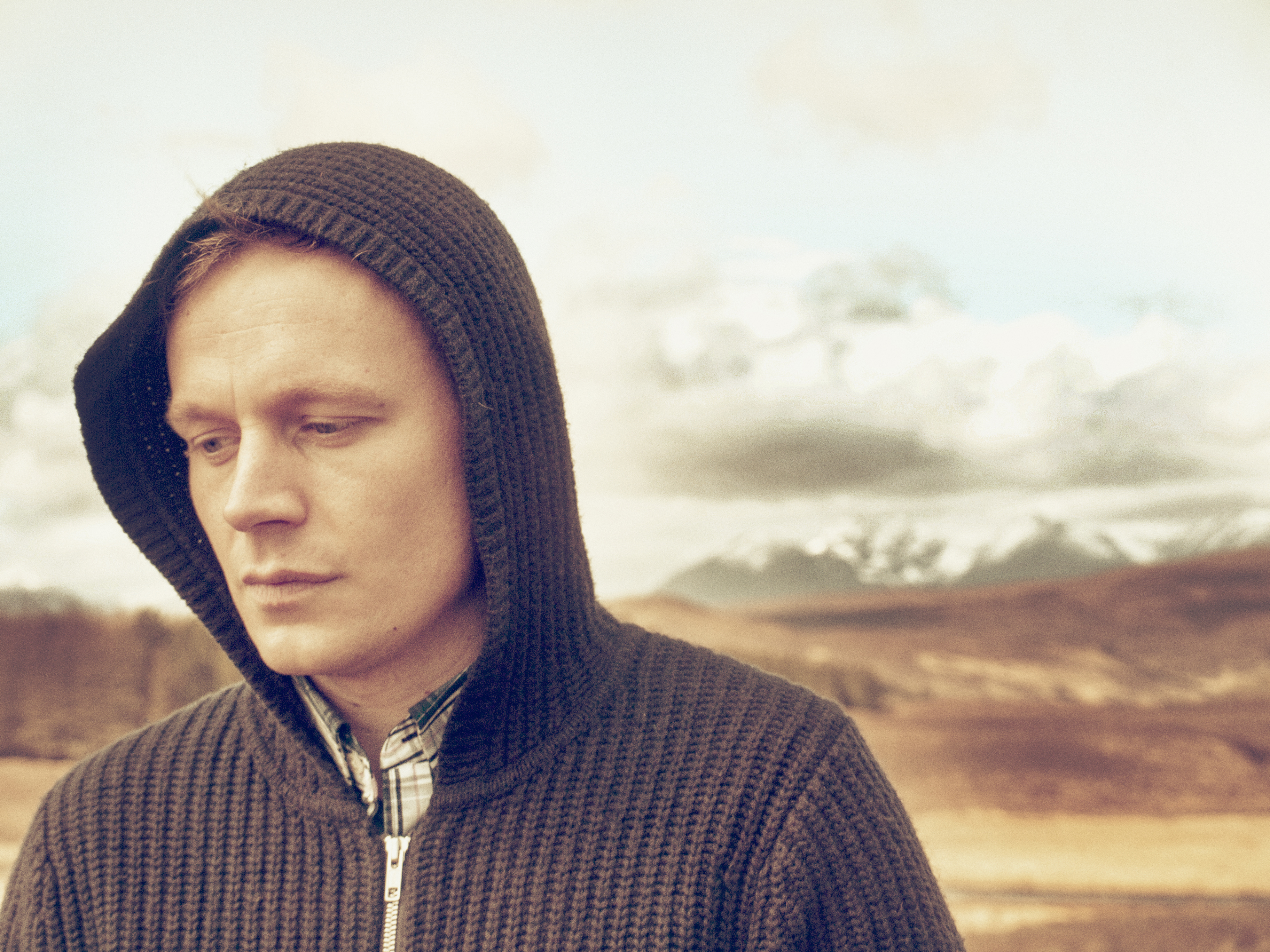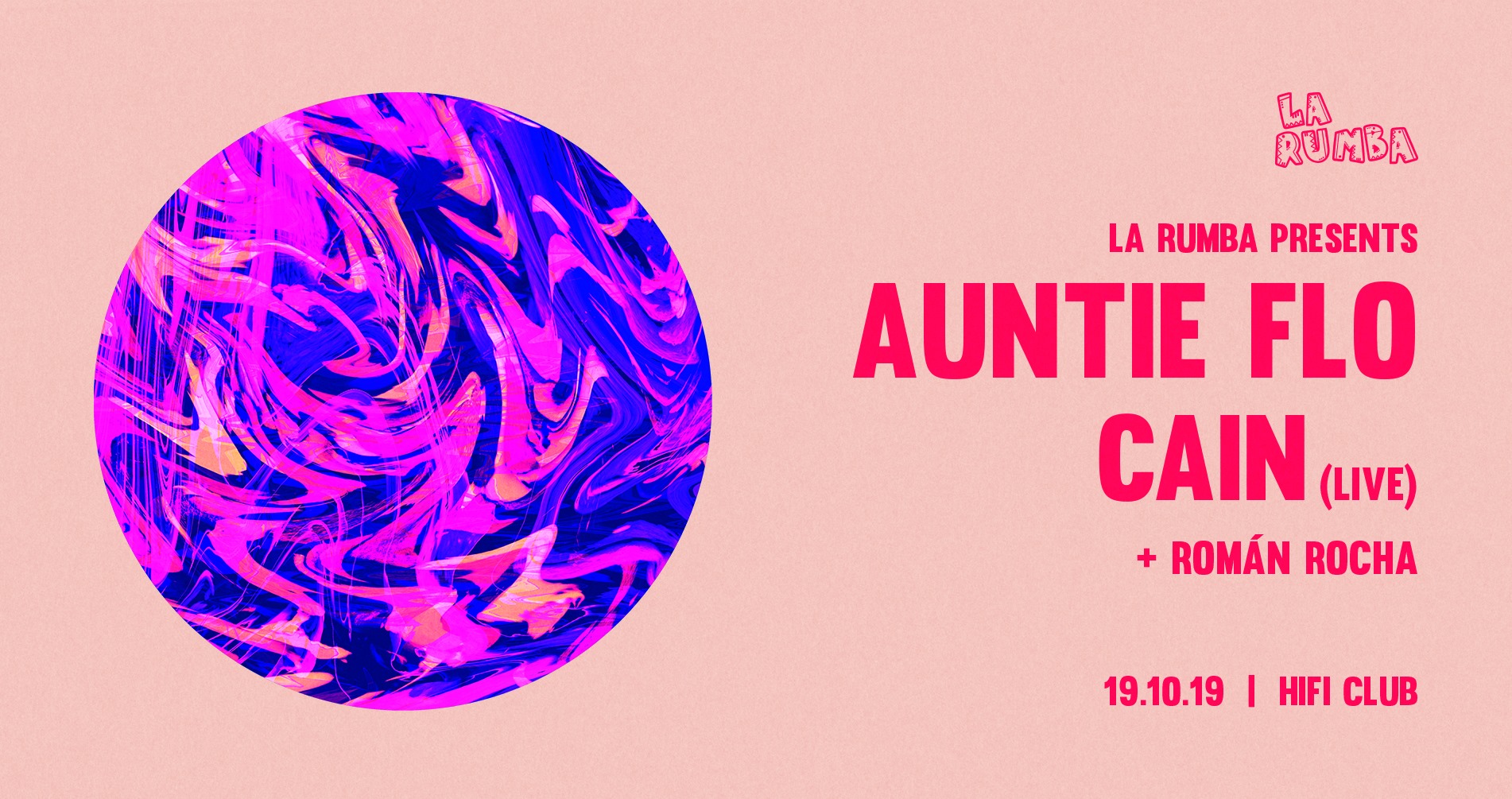BLOG

Q&A: Cain
Ahead of his set at La Rumba alongside fellow Scot and African music fanatic Auntie Flo, we chatted to prolific producer CAIN about his studio, live sets and route into global folk music.
Were you really a professional bagpiper?
Yes I was. My father was a top player and I grew up playing at the junior international competitions. At age 16 I won the junior world championships, and I kept competing until around 5 years ago. Playing against the best in the world (who are often from countries such as Canada and New Zealand, not just Scotland) meant having to practice for hours every day. I really wanted to write my own music, so I had to stop competing when I started writing CAIN tunes.
What was it like growing up in the Highlands of Scotland?
It was wonderful being surrounded by such incredible scenery and also steeped in the traditions of Gaelic culture. I spend hundreds of hours climbing hills and swimming in lochs. I really miss that at the moment living in a city. I always feel connected to nature and landscapes though and I seek to express this through my music. Being out in the wilderness really calms my mind down so I try to get outdoors whenever I can.
How did you eventually get into dance music?
I was actually really obsessed with hip hop at first. I used to do turntablism – that was my introduction to DJing. I think at my core, my musical allegiance will always be to hip hop in some way, but Brian (Auntie Flo) helped to get me into house and techno at university. I’ve always tended to like the harder side of 4-4 music, so I took to techno very easily. I love interesting sonic textures and I really think that a lot of skill in writing good techno music is about the correct kinds of distortion and saturation. The more you produce music the more nerdy you become about satisfying drum sounds etc… I like to write music at all kinds of different tempos and I think that the notion of what should be played in a club has expanded enormously, so I tend to think of dance music as absolutely anything that I might play out in a club, rather than tracks with specific structures for DJs. The popularity of African inspired sounds rose a few years ago with artists such as Auntie Flo and Awesome Tapes pushing the continent’s music.
Where did your fascination with African beats come from?
Growing up playing the bagpipes in the Gaelic music tradition is definitely where my love of folk music from around the world started. Pentatonic scales are frequently used, so the melodies are easily transposed. I absolutely love lots of musical traditions from Africa, particularly music from Mali, but I wouldn’t say that this is above my love for music of other countries / cultures – Indian musical traditions might perhaps have influenced my music more. I think that folk music really tells the story of a country’s landscapes, cultures and people. You can hear the long hard winters and sylvan, nostalgic beauty of the midsummer in Icelandic, Highland and Nordic musical forms for example.
How did you first become involved in the Fine Grains crew? What is the rest of the Scottish scene like at the moment?
I first got signed to Fine Grains after giving a CD to the record label owner, Alex Horne, at Sonar. He’s an amazing guy and I try to support the label however I can do. The Scottish scene is great in that people really try to support each other I think, which I really appreciate. In Inverness, which is the nearest town to where I grew up, there is a crew called Hypnotic Groove who put on great nights and have brilliant guest mixes online. Those guys really support everything I do in such a genuine way. I really hope they keep growing the scene there.
Some of your productions make strong reference to UK bass music, with heavy basslines and grimey elements. Is this the kind of music your listened to growing up/in clubs?
Yes definitely. I’ve always enjoyed music with ‘warrior’ elements, so I really took to bass music in a big way. Some of my best clubbing experiences have been at Hyperdub nights. In my own tunes one of the structures that I often want to achieve involves creating 3 distinct elements that all work together: 1) an infectious rhythm, with a focus on drums that almost have melodic lines in themselves, 2) an ethereal upper mid and high end, often with psychoacoustic sounds to create the atmosphere, 3) a bass sound that is unexpected and really grabs the listener, and doesn’t just follow the other elements. Most of the time I don’t really achieve this though! I really think that there is nothing more exciting in a club than when really charismatic and unusual bass sounds arrive in a tune.
Your live appearances are rather few and far between. Is this because you’re commitments are more focussed on studio recording?
I’d love to play out a lot more but I think I need an agent! I have a full time job working in fundraising for a children’s mental health charity so it can be difficult to promote my music as well as having the time to create it. I think that more people know my tunes than know that I have a live set and can also DJ. When time is limited I always prioritise making the music, but hopefully over the next year I will get to play out a lot more.
What does your studio set up look like? And what is your recording process? Where do you find your samples?
I have a home studio in which I use Ableton, analogue synths and some saturation units. I’m too impatient to try to programme synths on the computer, I need to be able to turn knobs etc. So, for the synth elements in my tunes I use a Prophet 7, Moog Minitaur and Pulse 2. I’d like some more synths, but really I think that if I was better at programming them I could get a lot more sounds of the the ones I already have. Drums are an absolutely central part of my productions, so I spend a lot of time trying to find individual drum samples. I can play the keyboard a bit too, which really helps. For samples, if there is a more prominent vocal I nearly always ensure that these are from a royalty free, cleared sample CD. For other samples, I find these from field recordings online. I try to always ensure that the sample is one element of the tune out of many and not the core, but obviously that is not always possible. I have a lot of upcoming collaborations planned with incredible folk musicians that I know, which will be happening very soon.
Can you tell us a little bit about your live set-up and what we can expect from the show at HiFi?
For my live set up I will be using Ableton with an APC controller, a small effects unit, a keyboard and also most likely my Prophet, Minitaur and Pulse 2 synths as well. Soon I am going to get an electronic bagpipe chanter which I can use as a midi controller to play some blisteringly fast synth melodies, as I’ll have all my bagpipe playing experience for this! I might have it in time for this set.
